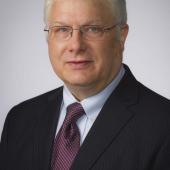
This course has been cancelled.
Tutorial Description:
This course is intended to be taken as part of a two-part double session. Part I may be taken alone. This course will equip participants to analyze physical systems accurately then specify suitable and practical means of accomplishing the required separation. It is geared towards common applications in the process industries, including product, waste and recycle streams. Although technology constitutes the primary focus, economic factors are also considered. Mechanisms underlying the two dominant forms of solid-liquid separation, filtration and sedimentation, are examined, and the derivation of design equations from conceptual models is explained. Experimental measurements needed to apply those models and determine key process parameters are described, including basic methods for acquiring essential data which are accessible to most technical staff. The impact of material and transport properties is discussed, along with the uniquely influential role of filter media. The performance of supplementary operations, such as solids washing or deliquoring, is analyzed to evaluate their potential contribution to process objectives. Guidelines for the correct matching of separation technology to the suspension and process are provided.
Dr. Ray Collins, from The Dow Chemical Co. will teach this tutorial. Dr. Ray Collins is a senior scientist in the Core Research and Development organization of The Dow Chemical Co., where he serves as a subject matter expert for fluid-particle separations. Ray leads an engineering laboratory in Midland, MI that specializes in associated technologies, performs comprehensive testing, and supports the diverse operations of Dow worldwide. In this role, he develops solutions for new processes, troubleshoots existing operations, consults on technology selection and best practices, investigates novel or improved separations, and conducts technical training. He joined Dow in 1988 upon receiving a doctorate in chemical engineering from the University of Akron for research which analyzed the mechanism of cake filtration as a form of unsteady, multiphase flow. His industrial experience spans specialty chemicals to waste treatment and includes more than 250 different processes involving all forms of cake, cartridge and depth filtration, straining and classification, gravity and centrifugal sedimentation, crossflow membrane filtration, mechanical expression, solids washing, the characterization of filter media, crystallization from solutions and melts, and solvent extraction. Ray’s most recent work has involved biochemical processes which produce agricultural chemicals of low toxicity, submicron filtrations to produce electronic materials, and membrane filtration for water and solvent recycling. His contributions to environmental quality and economic profit have been recognized by Dow business units for their technical innovation and substantial value. He has two patents for filtrations related to catalyst production and two applications pending. Ray is a certified Six Sigma green belt, a past chair of the American Filtration and Separations Society, the current chair of its publications committee, a recipient of its Frank Tiller Award, and a former lieutenant colonel in the US Air Force Reserve. He is a frequent presenter at events organized by the AFS Society and the American Institute of Chemical Engineers.
